2026 East Tennessee Regional Event
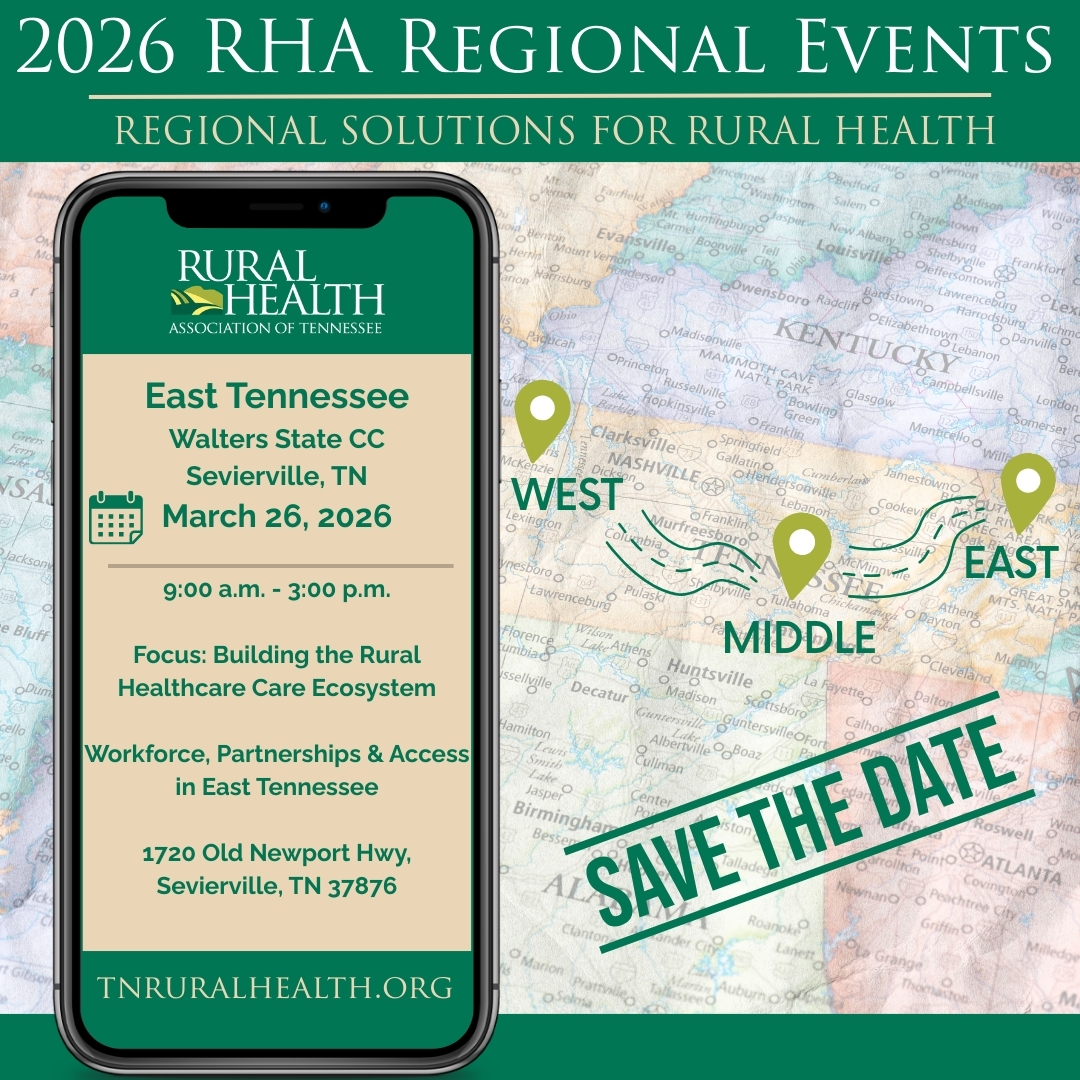
RHA is Coming to East TN!
The Rural Health Association of Tennessee will host its second of three regional events on March 26, 2026, in Sevierville, TN. We are grateful to Walters State Community College for hosting this meeting, which will bring together health care professionals, community leaders, public health advocates and rural health champions.
This East Tennessee regional event will focus on building the rural health care ecosystem, with an emphasis on workforce development, partnerships, and access to care across the region.


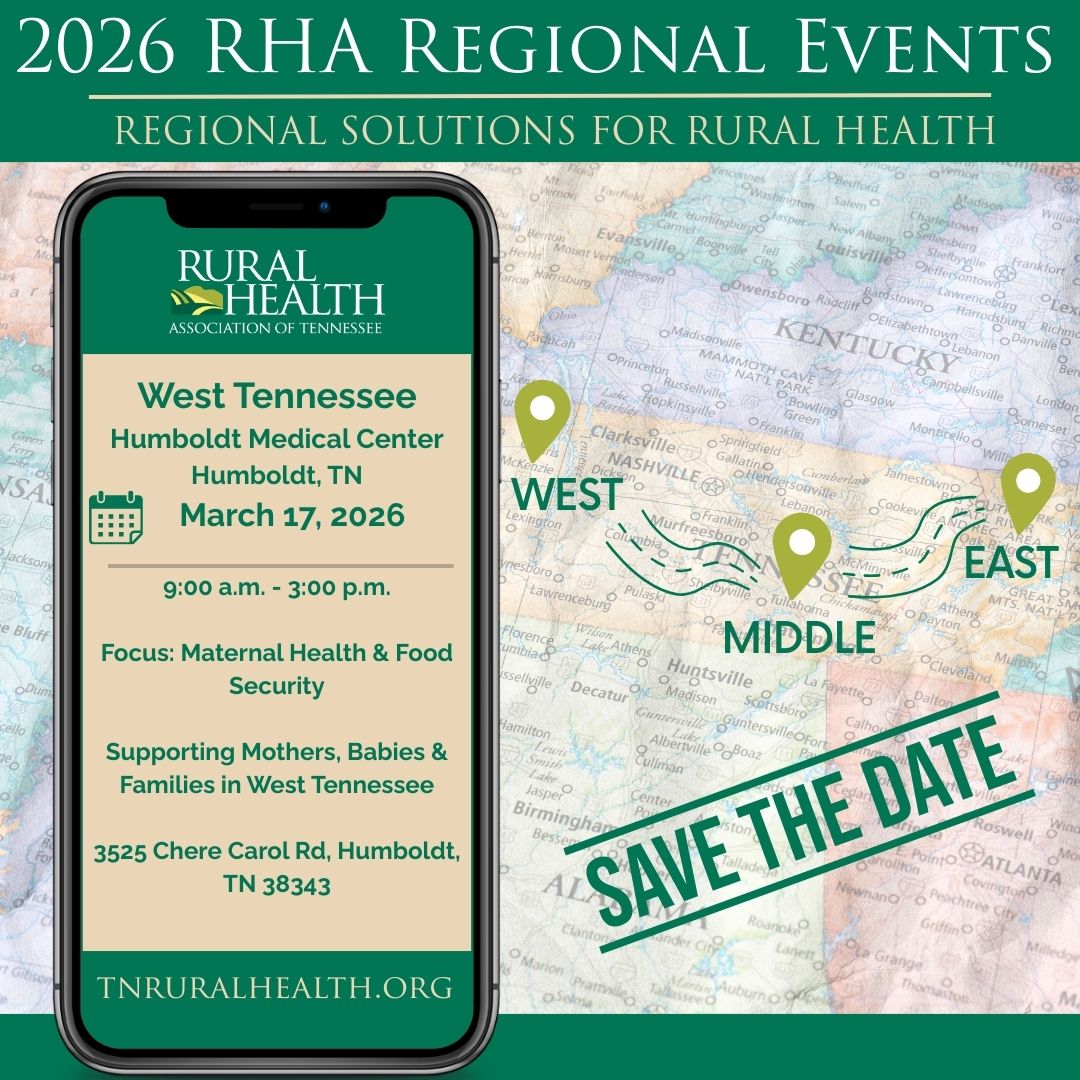
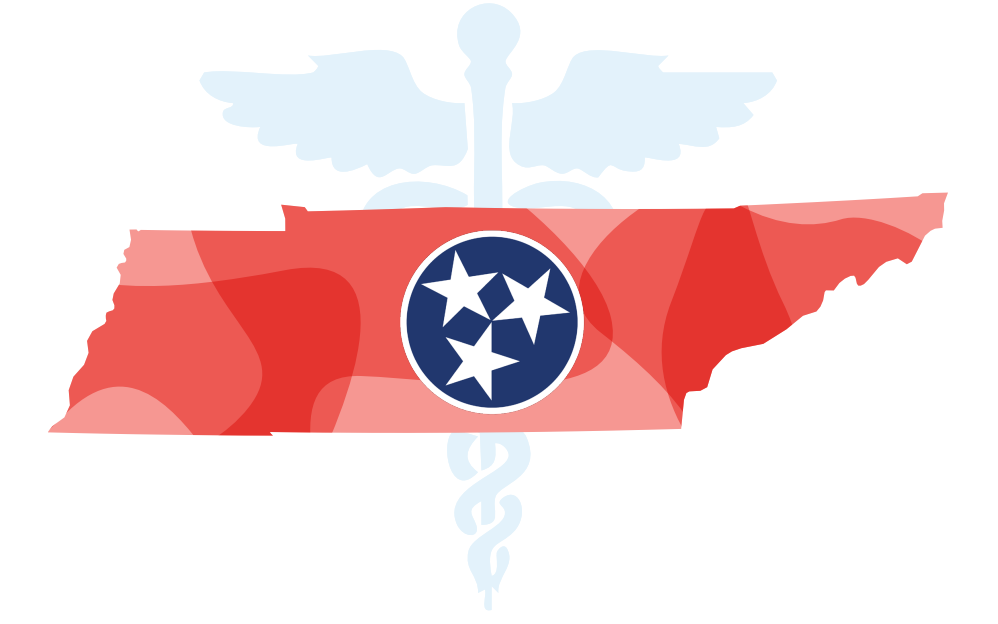 Physician Workforce Study Published by the Tennessee Hospital Association
Physician Workforce Study Published by the Tennessee Hospital Association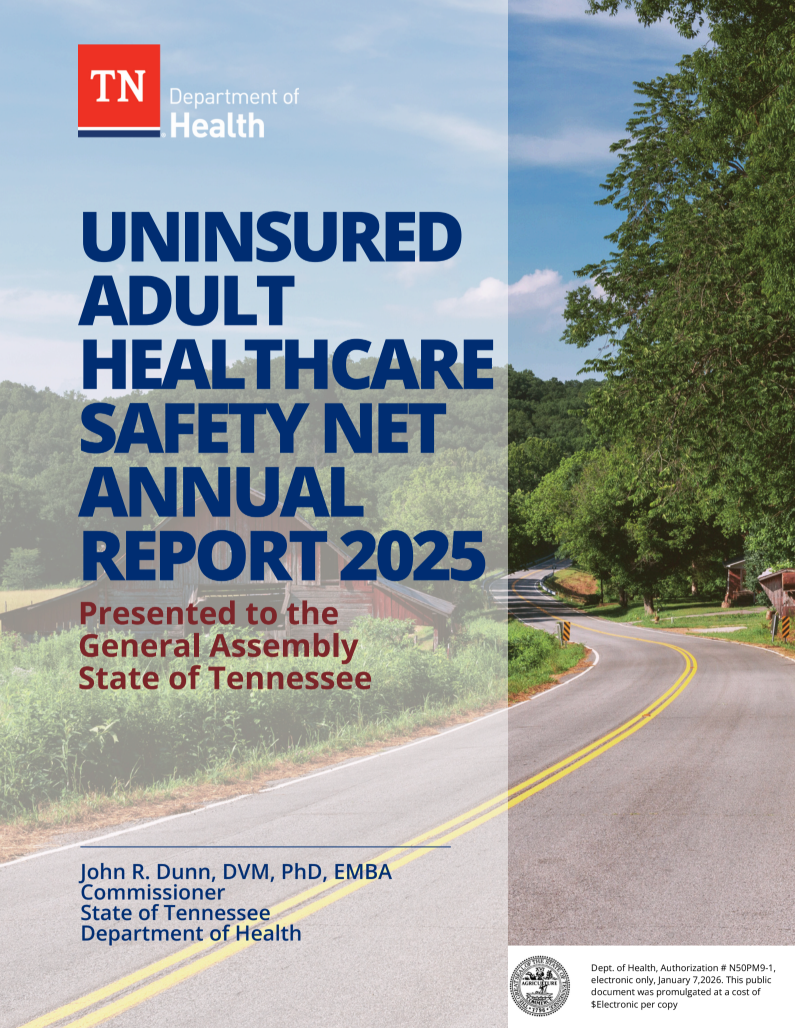 Uninsured Adult Healthcare Safety Net Annual Report
Uninsured Adult Healthcare Safety Net Annual Report Rural Health Association of Tennessee celebrated National Rural Health Day on November 20th in Seiverville, Tennessee at our 31st Annual Conference, "Connecting Care, Strengthening Communities". The conference was a dynamic and engaging three days of learning from experts in rural health fields across the state, bringing together professionals within the healthcare field. It provided a platform for the exchange of knowledge, ideas and experiences, fostering growth and collaboration.
Rural Health Association of Tennessee celebrated National Rural Health Day on November 20th in Seiverville, Tennessee at our 31st Annual Conference, "Connecting Care, Strengthening Communities". The conference was a dynamic and engaging three days of learning from experts in rural health fields across the state, bringing together professionals within the healthcare field. It provided a platform for the exchange of knowledge, ideas and experiences, fostering growth and collaboration. 
 Rural Americans are more likely to be self-employed or work for small employers that do not offer insurance. More than one third (35.2 percent) of rural adult workers are not offered employer sponsored coverage, compared to 29.1 percent of urban workers. Without access to employer plans, rural residents depend heavily on the Marketplace and the affordability provided by premium tax credits.
Rural Americans are more likely to be self-employed or work for small employers that do not offer insurance. More than one third (35.2 percent) of rural adult workers are not offered employer sponsored coverage, compared to 29.1 percent of urban workers. Without access to employer plans, rural residents depend heavily on the Marketplace and the affordability provided by premium tax credits.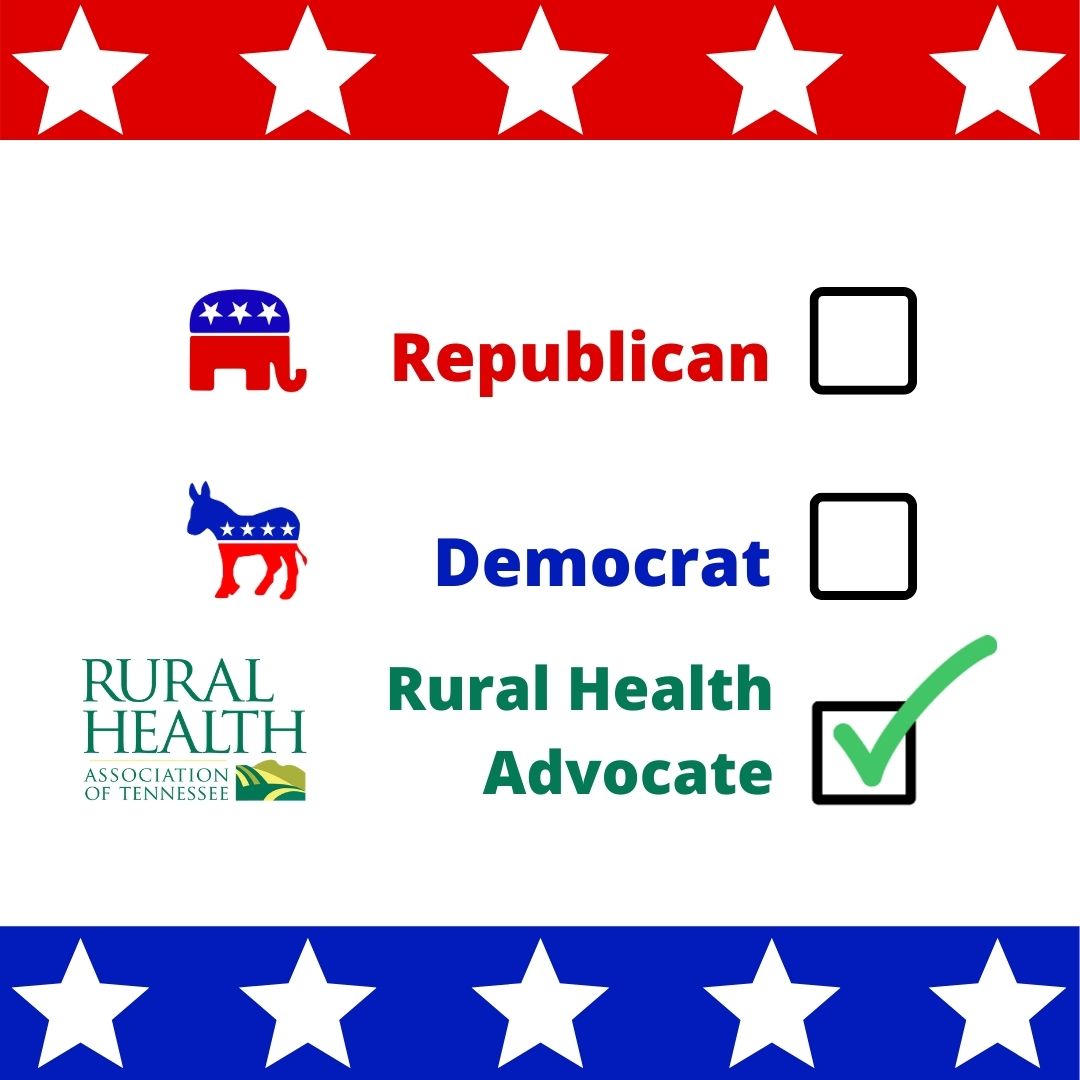

 Rural Health Association of Tennessee (RHA) is working hard to ensure that the federal
Rural Health Association of Tennessee (RHA) is working hard to ensure that the federal 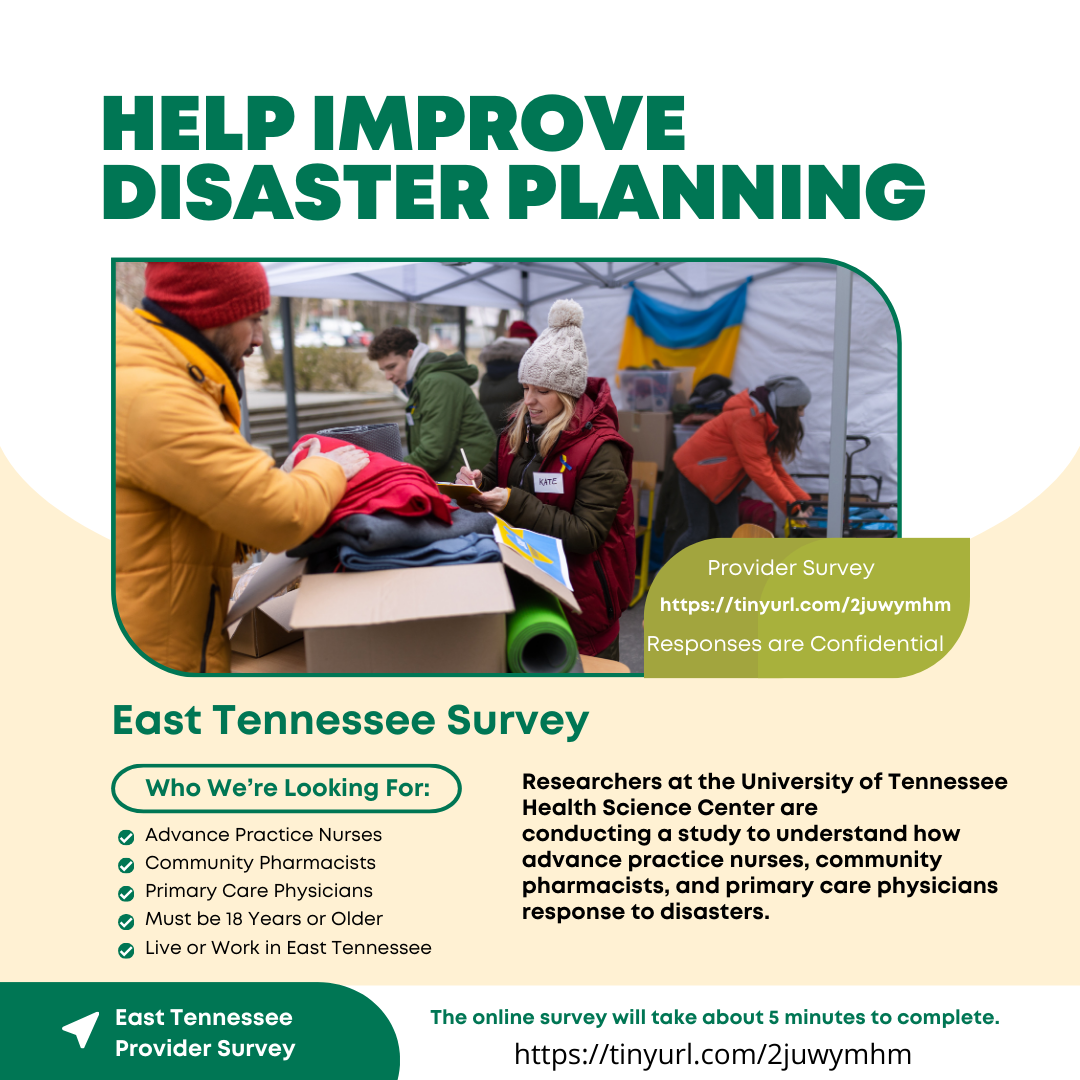 Help improve disaster planning.
Help improve disaster planning.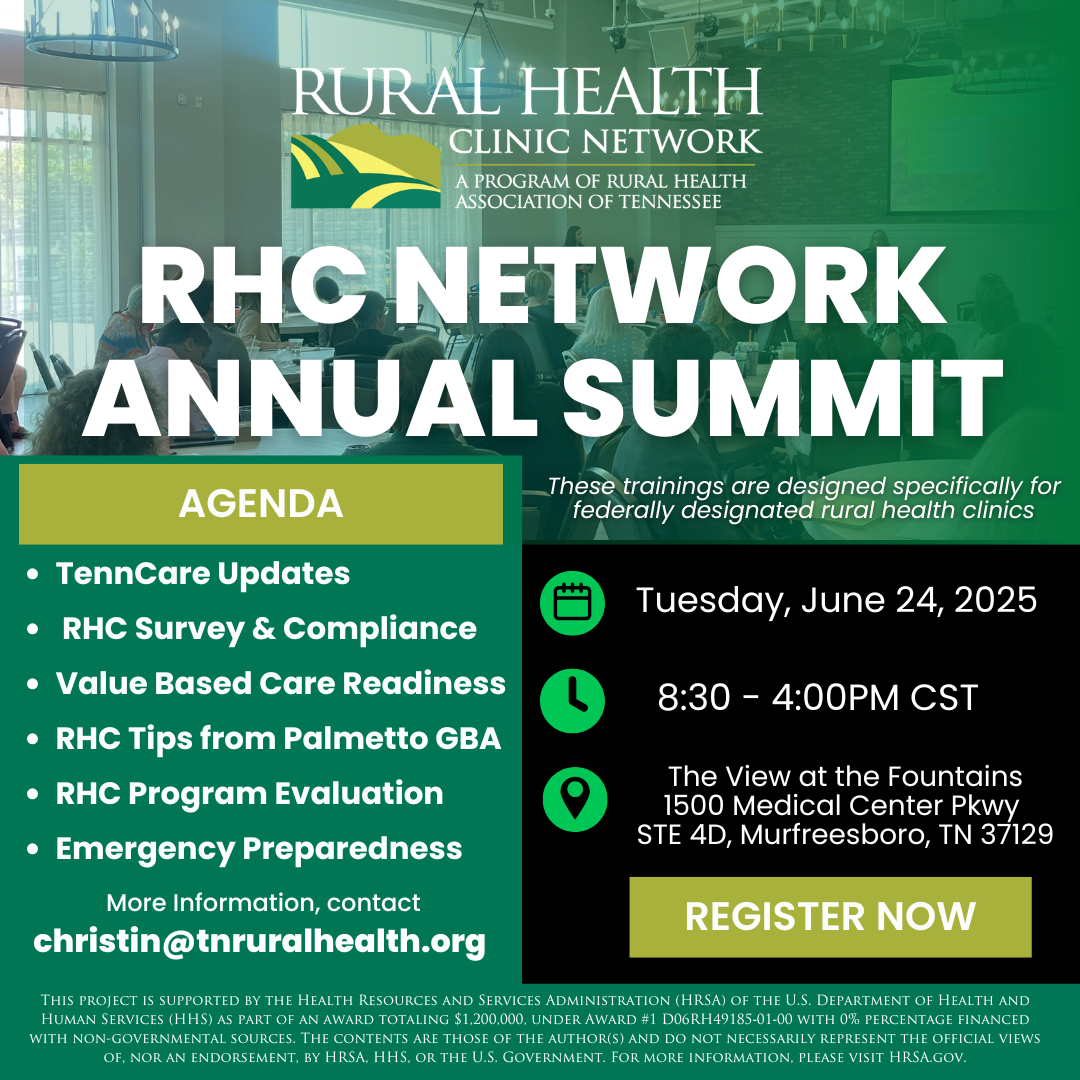 The Rural Health Association of Tennessee (RHA) is excited to host the Rural Health Clinic (RHC) Network Annual Summit on Tuesday, June 24, 2025, in Murfreesboro, TN. This highly anticipated event is dedicated to supporting federally designated Rural Health Clinics by providing training, resources, and networking opportunities to enhance clinic operations and patient care.
The Rural Health Association of Tennessee (RHA) is excited to host the Rural Health Clinic (RHC) Network Annual Summit on Tuesday, June 24, 2025, in Murfreesboro, TN. This highly anticipated event is dedicated to supporting federally designated Rural Health Clinics by providing training, resources, and networking opportunities to enhance clinic operations and patient care.
 The Tennessee Center for Health Workforce Development is thrilled to announce their inaugural TCWD Middle TN Discovery Summit, hosted by Belmont University and sponsored by TN HOSA, on Saturday, March 29, 2025, from 9:00 AM to 12:00 PM. This event is a fantastic opportunity to strengthen healthcare pathways by offering professional insights and showcasing vital programs and resources for anyone interested in pursuing a career in healthcare.
The Tennessee Center for Health Workforce Development is thrilled to announce their inaugural TCWD Middle TN Discovery Summit, hosted by Belmont University and sponsored by TN HOSA, on Saturday, March 29, 2025, from 9:00 AM to 12:00 PM. This event is a fantastic opportunity to strengthen healthcare pathways by offering professional insights and showcasing vital programs and resources for anyone interested in pursuing a career in healthcare. Join us for a valuable
Join us for a valuable